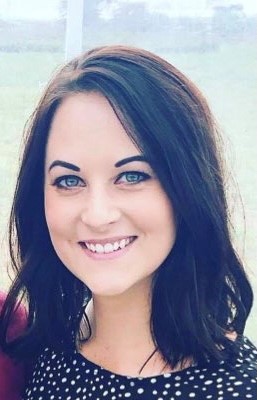
Why do Australian nurses still go to work when they are not fit to do so, what are the main drivers of the phenomenon and what implications does it have on the workforce?
Flinders Caring Futures Institute research led by registered nurse and PhD candidate Michelle Freeling is investigating the concept of presenteeism, where nurses are physically present in the workplace despite issues with their health and wellbeing that should stop them from attending.
With a background in acute care settings, including as a theatre nurse, Ms Freeling says she witnessed the phenomenon first-hand.
“On some units, you knew your manager would tell you to stay home if unwell. Whereas in other units you would be expected to show up for work, no matter what. Different cultures meant that people behaved in different ways.”

Presenteeism is a wicked problem in Australian workplaces, costing the economy approximately $34.1 billion per annum. Lost productivity due to presenteeism and associated health conditions is the main consequence for organisations. In the healthcare setting, nurse presenteeism presents a major problem, negatively affecting systems at a macro and micro level.
“For instance, patient safety can be impacted as presenteeism is associated with higher rates of patient falls, medication errors and a poor patient safety culture,” Ms Freeling says.
Dissatisfied with the literacy around presenteeism affecting the Australian nursing workforce, she decided to investigate the topic further through a PhD.
“My aim is to identify the predictors of nurse presenteeism in high acuity settings and explore nurses’ experiences of presenteeism.”
Ms Freeling has conducted a national survey of nurses working in perioperative, emergency room and intensive care settings, to gauge their opinions on presenteeism and paint a picture of their experiences. Around 400 nurses responded.
“Preliminary survey data analysis indicates that nurses with caring responsibilities, and working in public hospitals, are more likely to be presentees,” she says.
The research is exploring the impact of nurses’ loyalty and sense of obligation on presenteeism, as well as financial pressures which disproportionately affect casual workers. Qualitative responses have indicated one of the key drivers of presenteeism is other responsibilities or concerns, such as the need to care for a sick child or family member.
“Many nurses are reporting taking sick leave to look after their children when they are ill, but then they have no sick leave left when they need a day off themselves,” Ms Freeling says.
One participant summed up the problem by commenting, “The kids are always sick from day-care, so someone has to take time off. It’s a circle.”
Ms Freeling says COVID-19 has added further complexity to the issue.
“Research is coming out now that shows people are not coming to work physically sick – they are coming to work and not being present because of other factors, many of them mental and psychosocial.
“Presenteeism is not only about physical sickness. It is related to work life balance, a lack of professional identity, or a feeling of obligation. We do not yet know the full ramifications of COVID-19 on nurse presenteeism.”
One nurse made the comment, “…sometimes I wish I could take short cuts or just give up. I would love a day off but haven’t had one in 4 months. After this outbreak I will need to rethink my job choices.”
Ms Freeling hopes to develop a more comprehensive understanding and increase awareness of presenteeism and what it means for the healthcare system, beginning with devising an accurate definition.
“It is such a topical thing. Everyone has experienced presenteeism and I feel we need to do better. Once we have a proper definition, I would like to develop some recommendations around leave allowances to give people the support they need. This is a real investment opportunity for the future of nursing.”
In tackling the problem, it is hoped reduced presenteeism will improve patient safety, save organisations money and strengthen productivity. Ms Freeling sees potential for future research investigating the impact of presenteeism on nurses in aged care and hopes to conduct focus groups with both managers and nurses to collect more data.
Ms Freeling is being supervised by Dr Nina Sivertsen in Flinders’ College of Nursing and Health Sciences. Research supervision is by Professor Di Chamberlain and Dr Didy Button.

